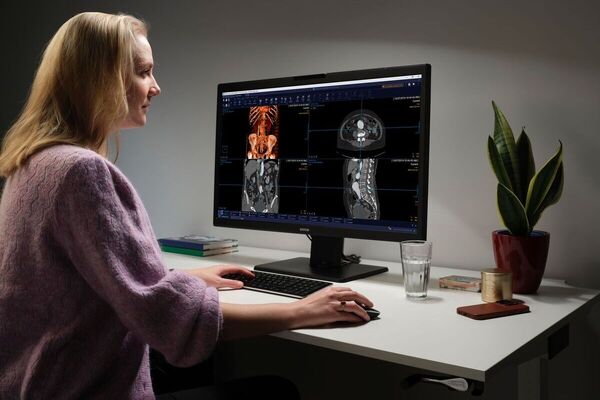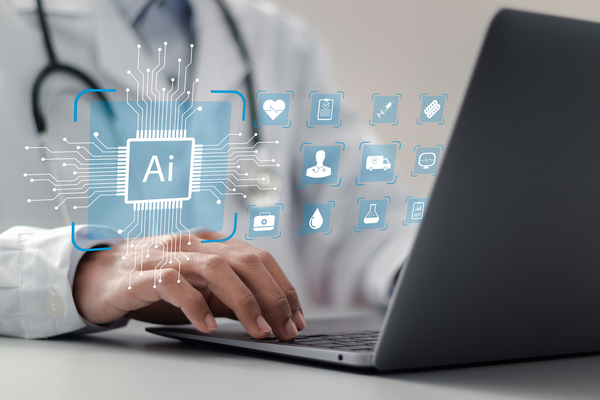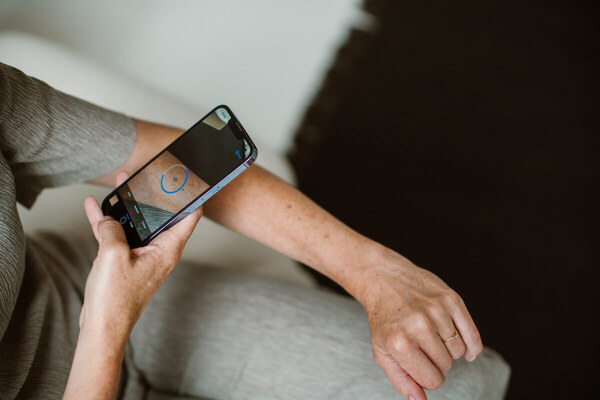Better tech improves patient care

64% of UK healthcare workers experience IT issues during their normal working week; only a third of their time is actually spent helping patients
More than two-thirds (68%) of UK healthcare workers (55% globally) agree that investment in new or better technology could help save lives. These are the findings of the new Critical Technology for Critical Care: The State of Mobility in Healthcare 2020/21 Report, commissioned by enterprise mobility and IoT management provider, SOTI.
Homecare workers, visiting nurses and nurses in the field from across the UK, Germany, France, Sweden, U.S., Canada and Australia were surveyed to understand how technologically equipped they are, the key mobility challenges they are experiencing on the frontline and how well their organisations have fared during the COVID-19 pandemic.
The research found that outdated technology is having far-reaching consequences in the UK healthcare sector. 64% of UK healthcare workers (63% globally) estimate they experience device/system failure due to IT/technology issues within a normal working week and 56% (54% globally) say that trying to use their employer’s technology wastes valuable time they could have spent helping patients.
In fact, a lack of or outdated technology could be to blame for why just 37% of UK healthcare workers’ (44% globally) time is spent helping patients; the rest is spent on activities such as accessing and updating patient records, and recording information for administrative purposes.
The impact of COVID-19
During the COVID-19 pandemic, many healthcare providers have turned to technology to help ease the burden caused by the disease, while also enforcing strict social distancing measures. 23% of UK healthcare workers (33% globally) said that new systems and/or technology have been introduced by their employer during the pandemic.
Despite this surge to meet the demands of the pandemic, just a quarter (24%) of UK healthcare workers (22% globally) said their technology systems were prepared to manage any situation related to COVID-19, while 26% said their existing systems and technology have been unable to cope. 73% agree that their employer needs to invest in new or better technology to prepare for any future health crises. Globally, 55% of healthcare workers agree with this statement, and in Germany, it is as low as 45%.
Meeting healthcare workers’ demands and concerns
Although the significant impact that outdated or lack of technology is having on the healthcare industry is alarming, there is hope for a brighter future for the use of technology and more specifically the Internet of Things (IoT) to help improve healthcare practices and improve patient care. Providing medical care in the field, such as in patients own homes, is one such area.
Providing mobile equipment to healthcare professionals out in the field is a delicate balancing act, as their employers must ensure the devices are functioning correctly. While more than two-thirds (68%) agree accessing employer systems on a mobile device when visiting patients would make their jobs easier (64% overall), 82% (81% globally) have had issues with the systems and technology used when out visiting and caring for patients in the past.
With high-profile security breaches, such as the NHS WannaCry ransomware attack still fresh in many people’s minds, it may also be unsurprising that 89% of UK healthcare workers (81% globally) have concerns about the security of patient records – a real danger if devices are not managed properly.
“With healthcare budgets consistently stretched, but the expectations higher than ever due to the COVID-19 pandemic, it’s of little surprise that frontline healthcare workers are coming up against significant barriers,” commented Stefan Spendrup, VP of Sales, Northern and Western Europe, SOTI. “SOTI’s research shows that healthcare workers are wasting time on admin tasks which could be simplified with integrated mobile technology. Frontline staff are also impacted by legacy or outdated technology and with 68% of UK healthcare workers agreeing that better technology could help improve patient care, it is a clear sign that the time for smarter technology adoption is now.”
The Critical Technology for Critical Care: State of Mobility in Healthcare 2020/21 Report can be downloaded here.
Report methodology
Commissioned by SOTI, Arlington Research, an independent market research agency, conducted research to provide the content for the State of Mobility in Healthcare Report 2020/21. 475 interviews were conducted using an online methodology with homecare workers, visiting nurses, nurses in the field (in both private and public) across seven countries between September 28 and October 7, 2020. All respondents are aged 18 and over, working in companies with 50 or more global employees. The research provides an insight into how technologically equipped healthcare workers are, the key mobility challenges they are experiencing on the frontline and how well their organisations have fared during the COVID-19 pandemic.
About SOTI
SOTI is the world’s most trusted provider of mobile and IoT management solutions, with more than 17,000 enterprise customers and millions of devices managed worldwide. SOTI’s innovative portfolio of solutions and services provide the tools organisations need to truly mobilise their operations and optimise their mobility investments. SOTI extends secure mobility management to provide an integrated solution to manage and secure all mobile devices and connected peripherals in an organisation.

Business Reporter Team
Most Viewed
Winston House, 3rd Floor, Units 306-309, 2-4 Dollis Park, London, N3 1HF
23-29 Hendon Lane, London, N3 1RT
020 8349 4363
© 2025, Lyonsdown Limited. Business Reporter® is a registered trademark of Lyonsdown Ltd. VAT registration number: 830519543





